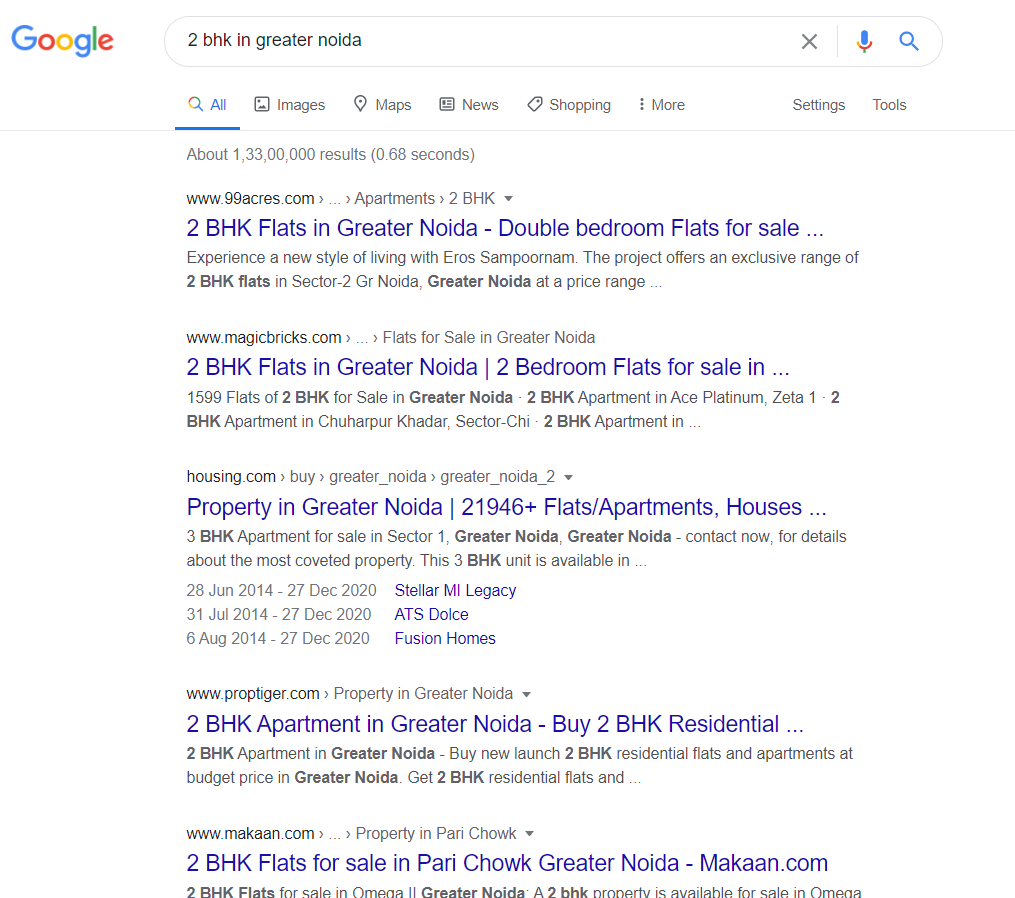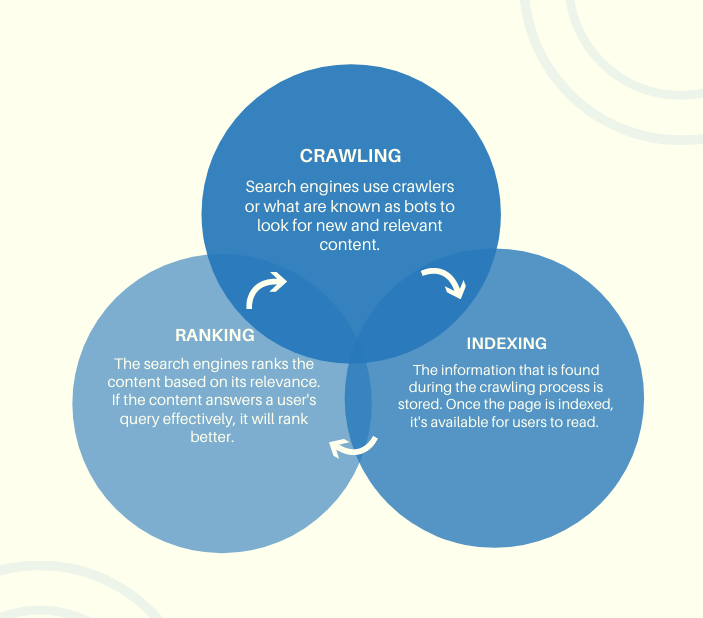
The way homebuyers search and purchase properties has changed considerably over the years. This can be attributed to an increase in internet penetration across Tier-2 and Tier-3 cities. A large number of homebuyers now search for properties as well as realtors online. Hence, whether it is a well-established real estate agency or a newly started company, everyone is trying to increase their visibility online. So how can you, as an agent, make your website stand out on the search engines? The answer is simple—SEO for real estate!
Search Engine Optimization (SEO) constitutes a number of tactics that can increase your brand’s visibility and attract a large audience. And the best part is, you don’t have to cold call or pay for ads to obtain buyer leads. With an excellent SEO strategy, your website can rank on the first page of search engines and you will start receiving un-paid or organic leads.
To make the process easier for you, here is a guide that will shed light on the importance of SEO and how it works. We will also share some of the tried and tested techniques that will drive traffic to your website through SEO.
What is SEO for Real Estate?
Let us understand the concept of search engine optimization by taking a quick look at the 3 important elements in this process.
Search Engines: Web-based tool that is designed to find information on the internet. Google, Bing, and Yahoo are examples.
Information Provider: Individuals or companies posting content on a specific niche.
Searcher: You were looking for an article that could explain SEO for real estate, and now you are here, reading it. But how did you find our article? This is where SEO comes into the picture.
Search Engine Optimization or SEO is a website optimization process that helps search engines rank content for a certain keyword
For example, if users are looking for “2 BHK in Greater Noida,” this is what they will see:

So, through SEO, your website can show up on the search pages the moment a user looks for something similar.
How Does SEO Work?
There are 3 major elements of SEO: Crawling, indexing and ranking. Let us understand their relevance through the image given below:

While crawling and indexing is one part of the SEO for real estate, ranking is further based on-page and off-page SEO tactics. These methods have been elucidated in the coming paragraphs, but here is what you need to know about them:
On-page SEO: These are the actions that are taken on your website.
Off-page SEO for Real Estate: Actions that are taken outside your website to improve rankings.
Quick Fact: According to Sistrix, the average click rate for an article at the 1st position in Google is 28.5%. The percentage, however, falls to 2.5% for an article at the 10th rank. This proves that search volume is not the only factor that defines the overall ranking of your website. You also need to focus on areas such as page speed, user intent and requirements, link building, etc.
Benefits of SEO for Real Estate Agents
SEO is one of the most important components of real estate digital marketing. With relevant keywords and up-to-date content, you can rank higher in search engines and generate leads organically. Enlisted are some of the benefits of SEO for real estate agents:
Traffic and Conversions
SEO for real estate is a cost-effective and reliable way of reaching your target audience. By laying emphasis on both on- and off-page techniques, you can attract the right set of audiences. For instance, using keywords like “new housing projects” will build traction, improve your search engine rankings, but may not necessarily attract local traffic. But if you incorporate a keyword like “new housing projects in Shalimar Bagh,” then the interested audience will check your listings.
Hence, you need to attract homebuyers using local SEO i.e. keywords that are location-specific. This SEO for real estate strategy may not increase the number of clicks, but it will definitely attract leads who are more likely going to contact you.
Brand Awareness
Using local and niche-based keywords and phrases, creating content that answers homebuyers’ queries, integrating social media with SEO for real estate, and focusing on referral links will push your website to the top of the search engine rankings. This will increase visibility, will lead to more clicks, and generate more leads!
Increases Domain Authority
To put it simply, domain authority (DA) defines how well your website ranks amongst the competitors in your industry or niche. Creating high-quality and SEO-optimized content plays a massive role in improving your DA. However, you also need to focus on eliminating toxic links, improving page speed, building new links, performing an on-page SEO audit, and actively sharing content on the right platforms.
Improves ROI
When it comes to click-through-rates (CTR) and lead conversions, SEO is a better and cost-effective real estate marketing technique. If your website is SEO optimized and has high-quality content, it will pop-up for most of the property related queries. This will enhance your brand visibility and more users would want to connect with you. Hence, your return on investments i.e. ROIs will improve.
Competitive Advantage:
In a highly competitive market, possessing a website that is finely-tuned and optimized can provide you with a distinct advantage over other real estate agents who may not be placing a high emphasis on search engine optimization (SEO). This invaluable asset enables you to differentiate yourself from the crowd and ultimately draw in a larger pool of potential clients.
Local Targeting:
Utilizing strategies like local SEO, such as ensuring your website is optimized for keywords related to your location and establishing a presence on platforms like Google My Business, can effectively reach and attract potential customers within your immediate vicinity or community.
Long-Term Results:
In contrast to paid advertising, which only brings traffic as long as you continue to invest in it, SEO offers long-lasting benefits by driving organic traffic to your website that can persist over time. This means that the efforts put into improving your website’s SEO can continue to yield results even after the initial work is done, providing a sustainable source of traffic and potential customers. Plus, this industry is always changing, and incorporating SEO for real estate websites gives you the ability to keep up with these changes by modifying your keywords, content, and tactics as needed. This adaptability helps you stay ahead of the competition and stay current in the market.
Data-Driven Insights:
SEO tools and analytics offer essential insights into how well your website is performing, such as tracking keyword rankings, identifying traffic sources, and understanding user interactions. By carefully examining this data, you can effectively enhance your SEO tactics and make strategic decisions for optimizing your website’s performance.
SEO for Real Estate: Strategies That Will Drive Traffic
Now that you have got an overview of what SEO for real estate is and what relevance does it hold for real estate agents, here is a list of the best techniques that can boost traffic and improve conversion rates.
Conduct an SEO Audit
Before you develop an SEO strategy, it is important for you to examine where you are on the search engines and how well your pages are performing. But what is the relevance of going through a cumbersome and time-consuming process?
- Performing an SEO audit is an excellent technique to identify untapped opportunities.
- It helps you stay abreast of the latest changes in SEO for the real estate landscape.
- You can assess the goals and conversion rates and tweak your strategies accordingly.
- SEO audits assist in identifying technical and on-page SEO issues, keyword gaps, competitor website metrics, organic vs paid traffic, individual page metrics, etc.
Once you have figured out the gaps, here is what you can focus on:

Bonus tip: You can use Site checker to perform a links audit on your website. This tool will help you check outbound links as well as internal and inbound links.
Keyword Research for Listings
Although there are multiple factors to make your tailor-made SEO strategy successful, the keywords you choose for your real estate company will affect your search engine rankings. To attract organic traffic and quality leads, optimize your website for keywords that focus on local search intent. For example, you may want to target “new projects in R.K. Puram,” but there is a possibility that “4-bedroom house in R.K Puram” has more search volume. In addition to the above, you should also perform competitor analysis to extract relevant keywords and to identify keyword gaps.
Create SEO-optimized Content
After website audit and keyword research comes the content creation part. Unless you are writing on home improvement tips, follow three C’s—Concise, Clear, Correct—in content writing for real estate. Apart from incorporating keywords into the content, take advantage of the “People Ask For” and “Google Suggest” sections to improve the quality of your article. Always remember, your content should answer reader’s query.
Focus on Local SEO
When it comes to SEO for real estate, posting area-based content is an excellent strategy. This is because search engines, including Google, wants to provide readers with the most relevant information. For example, if you sell properties in Andheri, then you can publish content on local attractions, educational institutes, hospitals and civic amenities, shopping complexes and restaurants, and entertainment hubs in and around Andheri.
Online Tools to the Rescue
The competition is stiff and to win the race, you need to offer unique and enticing content to users. SEO for real estate is not limited to high-quality content but you can also provide online home loans and mortgage calculators to the audience. This is an excellent opportunity to engage with the clients and to create brand awareness.
Same Topic, Different Keywords
“Facebook real estate ads” and “real estate ads” both have the same context but the total number of searches, Google suggestions, and content type varies for both. This means that for a specific topic, you can target multiple keywords. This allows you to reach a large pool of audience with the right set of content.
Say No to Black Hat SEO Practices
Techniques which improve your SERP rankings but violate the terms of services of search engines is called Black Hat SEO for real estate. While it may seem attractive at first, especially for newly launched real estate websites, but these practices can plummet your DA, invite penalties, and even result in site ban. Given below is a list of black hat practices which you need to stay away from:
- Google algorithm is designed in such a way that it can identify plagiarised content in one go. Scraping content from another website and pasting it on yours is a complete no-no.
- While incorporating keywords is essential to make your article search engine friendly, over-optimizing or “stuffing keywords” will invite penalties from Google.
- SEO has an Invisibility cloak. Yes, you read that right!
Cloaking is yet another black hat SEO technique where the article content does not align with the URL or vice versa. Simply put, through cloaking, you are not providing the information which a user was looking for.
Build high quality backlink
Building high-quality backlinks for real estate is an effective SEO strategy. Search engines prioritize websites linked by credible sources, boosting rankings and authority. For instance, if your focus is properties in Gurgaon, you can create content like market reports or neighborhood guides, attracting backlinks from local blogs or directories. Guest blogging, collaborating with local businesses, and submitting to directories are also excellent ways to earn links. The more valuable your content, the more likely other websites will link to it.
Add High-quality Pictures
Property images is essential in the real estate business, especially in the age when homebuyers have taken the online route. Virtual tools, 3D images, and videos are enticing and can attract more clients. But don’t forget to optimize the images for SEO as Google bots can’t process multimedia content.
Measure and Evaluate Metrics
Like every other business vertical, measuring and assessing SEO performance is also important. As easy as it sounds, there are an array of variables and metrics that needs evaluation. You can start by tracking the organic traffic on Google Analytics followed by examining the health of your backlinks. Apart from this, SEO for real estate also involves examining metrics like bounce rate, CTR, average time spent on a landing page, impressions and clicks, and domain authority.
SEO for real estate may sound easy to implement; however, with so many metrics to evaluate, preparing a concrete SEO map can be confusing. Our experienced team of professionals is here to take your real estate business to new heights. Want to know how? Book a free consultation session with us and explore ways to stay ahead in the game!

![Well, #GrowWithPropacity is here to educate you all about all things Real Estate.
Follow to stay updated in Real Estate!
[Real Estate, Construction, Real Estate Tips, Real Estate Growth, Real Estate Industry, Carpet Area, Super Area, Built Up Area, Home Buying Tips, Home Buyers, Property]](https://propacity.com/blogs/wp-content/plugins/instagram-feed/img/placeholder.png)
Leave a Reply